Since 2009, guests sailing on DFDS’ King Seaways have been able to join ORCA Ocean Conservationists looking out for whales and dolphins. From early March to late October, guests can head out on deck to spot some of the wonderful animals that call the North Sea home, and learn about the work that ORCA does to protect them.
This year, Ocean Conservationists also joined the Princess Seaways, which also sails from Ijmuiden (Netherlands) to Newcastle (UK) - meaning more vital data collection and even more awareness raised for whales and dolphins! From presentations to quizzes, kids activities and of course those all-important wildlife watches, there’s something for everyone on the King and Princess Seaways.
As the season comes to a close, this year’s North Sea Ocean Conservationists reflect on their time on board and share some of their highlights from the season.
Mathilde
This is my third year on this route, and for me this season, the white-beaked dolphins definitely stole the show. On King Seaways alone we have seen more white-beaked dolphins than in the 2022 and 2023 seasons combined! Although the reason for this increase is currently unknown, we do know that white-beaked dolphins use the UK coastline as nursery grounds, specifically around the North East of England. This year, many mother-calf pairs were seen, all off the UK coastline close to the port of Tyne but also off the Yorkshire coastline - showing the importance of ORCA’s monitoring work here.
You truly never know where and when these wonderful animals show up. That is one of the most frequently asked questions; what is the best time to spot cetaceans along this route? It’s safe to say, there is no best time! The answer is literally from sunrise until sunset. On the Dutch side of the North Sea, you have a good chance of harbour porpoises, and the occasional dolphins or maybe even a Humpback whale. Unfortunately, we didn’t manage to spot any humpbacks iin Dutch waters this year, but we were treated to many other sightings during the season.
Throughout the season I’ve had plenty of interesting conversations with passengers and helped many people to spot their first ever cetacean. One of these passengers was a teenage girl from Germany, who whilst on holiday in Scotland had hoped to spot whales but to no avail - so this was her last chance. We were treated to some porpoises throughout our watch but alas no whales. When dinner time came and she forlornly headed inside, in typical wildlife fashion, a minke whale popped up, mere minutes after she had left!
We continued our watch and when the hopeful whale-watcher rejoined us out on deck, I was nervous that the minke’s would not show up again - but something magical happened! Again only minutes passed and another minke surfaced! She was over the moon with her first ever whale sighting! All of us on deck were incredibly happy and glad that another minke whale had popped up to save the day.
We continued watching until sunset and managed to see another handful of minke whales! It ended up being an absolutely amazing evening of cetacean watching in the amazing North Sea!
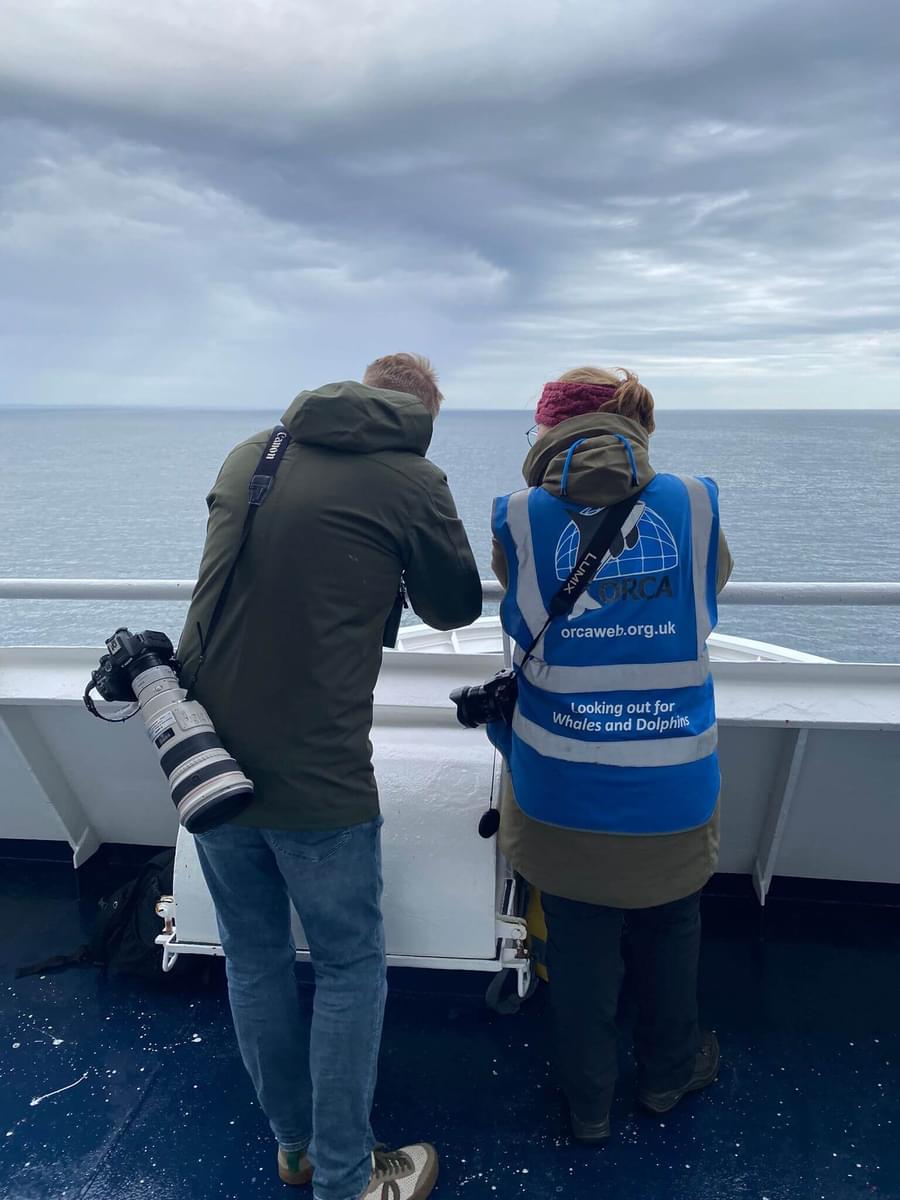
Eilidh
I have to agree with Mathilde that the white-beaked dolphins have blown me away this year! They are my new favourites. It’s worth mentioning that there are very few places around the UK where you can regularly spot white-beaked dolphins, so we are pretty lucky to pass through one of their key habitats during the ferry crossing. In fact, if you’ve had a look at ORCA’s latest State of Cetaceans report, you would know that in 2023 we noticed a decline in the number of white-beaked dolphins sighted in the Hebrides. This may be due to the increased number of common dolphins on the West coast of Scotland, which has potentially increased competition for prey and other resources. So it's been a great summer for spotting them in the North Sea!
Another highlight for me was all the wonderful and thoughtful questions from the children travelling on Princess. One sticks out in particular: during the presentation, a very astute boy raised his hand and asked, “So if a fish eats some plastic in the sea and then a whale eats the fish, surely the plastic ends up in the whale too?” He was correct, and had given a perfect example of one of the many issues cetaceans are facing: namely bioaccumulation. Unfortunately, marine mammals are generally top predators, therefore anything harmful their prey have ingested, they will ingest too. However this goes to show that every individual action makes an impact - and every piece of plastic kept out of the ocean helps protect whales and dolphins!
It’s great to meet so many curious and very knowledgeable wildlife enthusiasts!
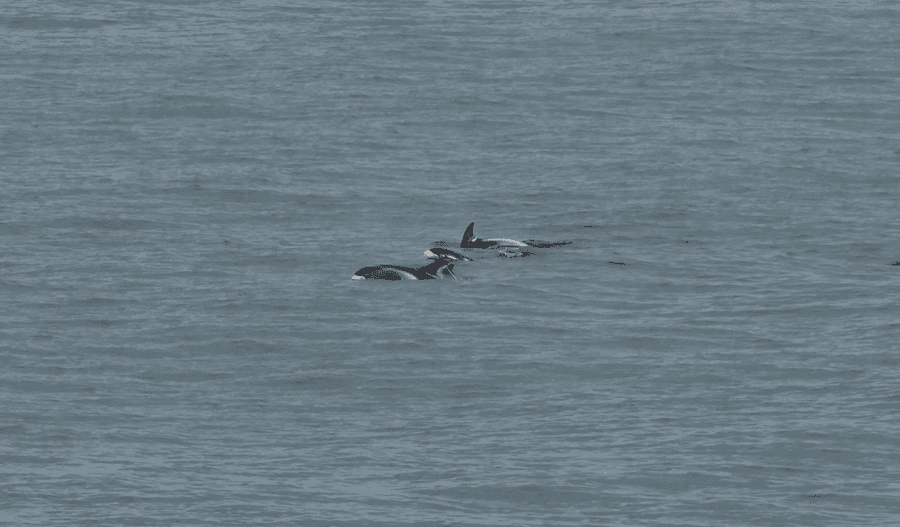
Alex
I'm deviating away from the crowd - the minke whales were my absolute favourite this season. With it being my first year working for ORCA, I had no idea what to expect and I was beyond thrilled with the amount of sightings I had during my time onboard. I was lucky enough to be surveying during the elusive 'Minke Season', this year starting in late August and going through to mid-September. I saw over 100 minke whales during my time on board, and I honestly had the same level of excitement for each and every one of them - think kid in a candy shop level of excitement. This was made even better when I had packed observation decks and lots of people seeing these beautiful animals alongside me, for some passengers it would be the first time they had ever seen a whale and it's truly a privilege to be able to experience that with them.
A particular stand-out evening for me was my first day back on ship, on the 26th August, and as it was a rotation change day, both myself and Mathilde were onboard. During the course of the evening we witnessed 15 minke whales popping up around the ship over a 2 hour period, which was truly breathtaking. During this same evening, we also saw over 42 grey seals and 29 Harbour porpoises and 4 white-beaked dolphins. Safe to say, it's a night I certainly won't forget for a while!
I have also been lucky to have had several fleeting encounters with one of the less common species on this route, the common dolphin, which, despite their name, are not a common visitor to the North Sea! A pod of 4 of this species was seen all the way back in May, only surfacing a few times, and a bigger pod of 14 individuals was seen in late August, keeping pace with the ship for a few minutes! It was severely heavy rain that evening, but these dolphins were seen from the inside wildlife centre on King Seaways and luckily there were many passengers that also got a quick glimpse of these dolphins - which just goes to show it’s always worth sitting near a window! With a very distinctive yellow and white hourglass pattern, these dolphins were a lovely treat to be able to see on this route, our jokingly 'uncommon' dolphins.
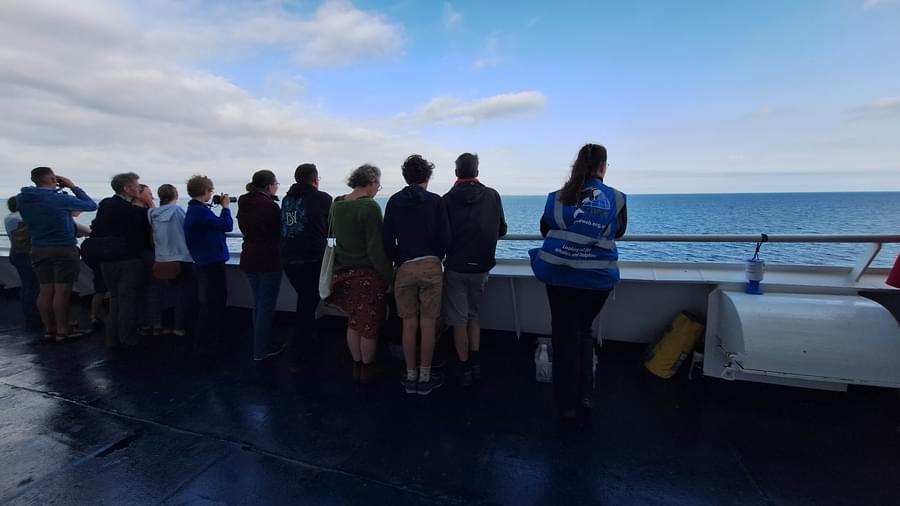
Emily
I have to agree with Alex - for me, the minke whales stole the show. With this being my first season working for ORCA I also did not know the extent of how common sightings in the North Sea were going to be! I was fortunate to start working right in the middle of minke season, and within the first hour of my first deck watch we saw our first minke and I was blown away. For my first two days on board, we had gorgeous weather and flat calm seas and were lucky enough to spot all four of the most commonly sighted species in the North Sea; the harbour porpoise, white-beaked dolphins, bottlenose dolphins and minke whales - an amazing introduction into working for ORCA. These incredible sightings continued to amaze me throughout the season.
A particular highlight from the minke whales this season was witnessing them breach! I have seen minkes before around Scotland, but I have never seen them breach. Throughout the season I was lucky enough to see whales breach on three different occasions. The exact reason why cetaceans breach is unknown; maybe as a courting behaviour, maybe to remove parasites from their bodies, maybe as a form of communication, or maybe just for fun? But the mystery is part of the reason why we love cetaceans so much!
A privilege of working for ORCA is to be able to share my love, passion and knowledge of the ocean and cetaceans with others, and what comes along with that is the pleasure of being able to experience and witness the enthusiasm and excitement towards whales and dolphins from other passengers. A memorable encounter for me was with a young girl from the Netherlands who was desperate to see a dolphin. She stayed out with me on deck for hours in the evening, unfortunately without a single sighting. She was back out first thing again in the morning, two hours went by still without any sightings. To my relief as we sailed into the piers at North Shields, out popped a pod of 10 playful bottlenose dolphins. She was absolutely over the moon, and for me, it was an absolute pleasure to be able to experience her first dolphin sighting with her!
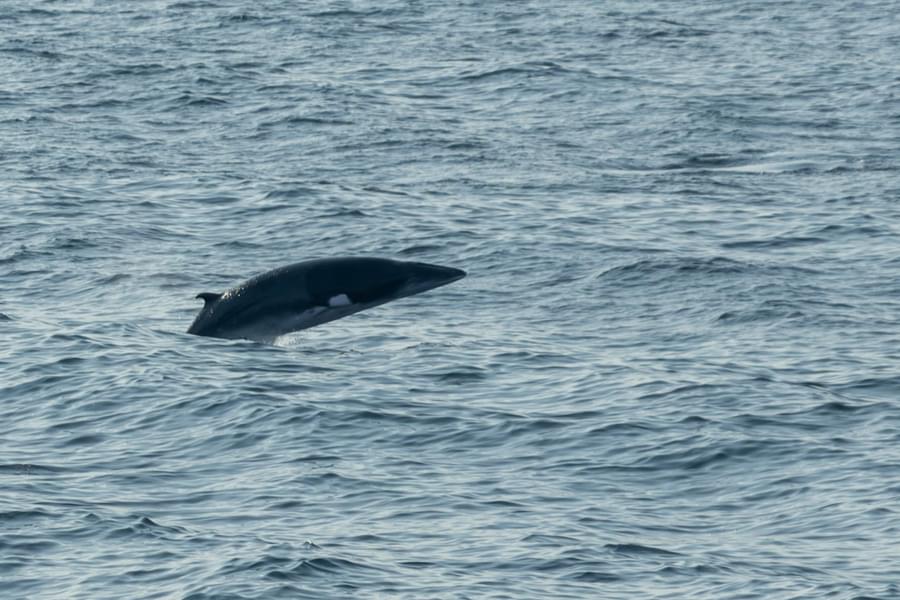
It’s been another truly incredible season in the North Sea. A big thank you to our friends at DFDS for continuing to support our vital work and to all the crew on board the King and Princess Seaways for sharing our love of whales and dolphins.
And of course, thank you to all the guests for meeting us on the North Sea and helping us spot all these amazing animals and making this a fin-tastic season!
Alex, Emily, Eilidh & Mathilde
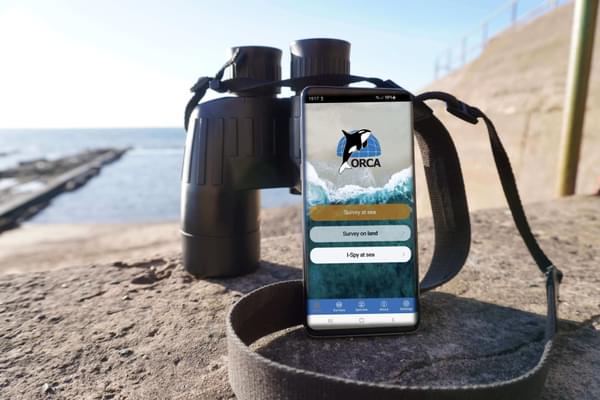
ORCA believe that everyone who cares about whales and dolphins can play an active role in safeguarding their future, and that's why we've designed our e-learning courses to give more people than ever before the chance to contribute to our research. Whether it's learning to spot and identify different species or using our fantastic OceanWatchers, we have the perfect way for you to start your conservation journey and learn about the role you can play in helping us understand and protect whales, dolphins and porpoises around the world. Visit learn.orca.org.uk to find out more and book your place today!

